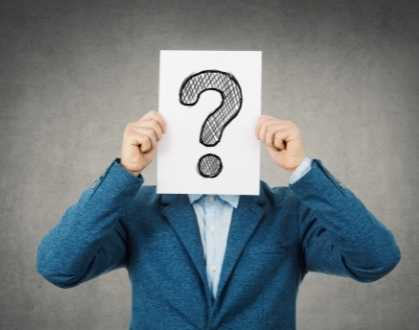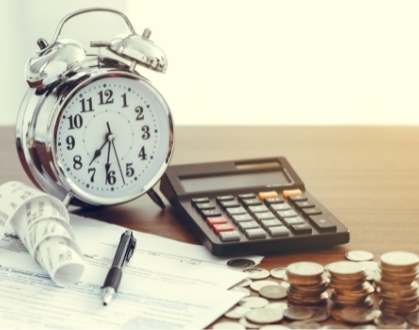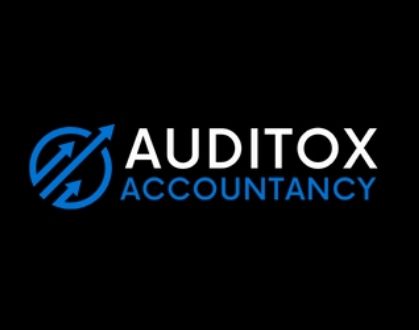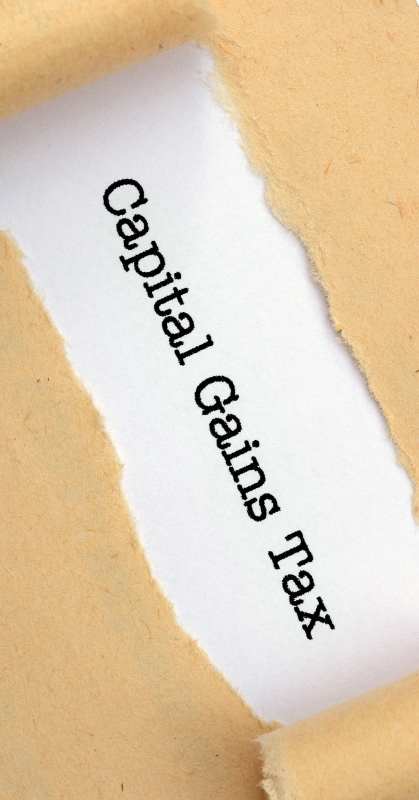- Home
- What are we
- Who we help
-
- How we help
-
-
-
- Accounting
-
- Advisory
-
- Business Support
-
-
- Resources
The Self-Assessment tax return is a responsibility that all sole traders have to deal with every year. Many self-employed people choose to complete their Self-Assessment tax returns on their own, but you may be seeing yourself short by doing so. Here at Auditox Accountancy, we can make sure that your tax return is 100% accurate and that you are claiming for all of the allowable expenses that you are entitled to.
As you know the sheer amount of tax codes used within the UK can boggle the mind and make even the most simple of self-assessment tax returns an arduous and complicated matter that takes up far too much of your time. Not only that but not correctly completing your self-assessment can incur a fine from HMRC! Many people fall into this pitfall and this reason alone is why you should make sure you get in touch with Auditox today and guarantee that you are paying the correct amount of tax.
If you fall into any of these categories you are likely to need to file a return:-
Self Employed
Business Owner (Company Director)
Overseas Income
Trustee Or Minister
Receive Child Benefit With An Income Over £50k
Savings Over The HMRC Allowance
If any applies to you, get in touch with Auditox today via the contact form above and solve your self-assessment tax return woes with ease.

Being self-employed can mean different things depending on the nature of your business, and different types of businesses need to submit their earnings to HMRC in different ways.
A sole trader is someone who has their own business as an individual and they are the exclusive owner. After paying your tax bill, you will keep all of the profits from the business and you are personally liable for any losses.
In contrast, limited companies are a separate legal entity from you so you are not personally responsible for business losses. You can pay yourself a salary and dividends from the company and you will need to submit a Self-Assessment tax return for these.

Not every sole trader needs to submit a Self-Assessment tax return. You will need to if you have earned more than £1,000 in the previous tax year. You can also choose to submit a tax return if you want to prove that you are self-employed (for example, to be able to claim Tax-Free Childcare) or if you want to voluntarily pay Class 2 or Class 4 National Insurance contributions.
If you are an employee, your employer will calculate how much tax you need to pay and subtract it from your earnings via Pay As You Earn (PAYE).
If you have other income, however, you may still need to complete a Self-Assessment tax return. For example, if you rent out a property, are making an income from dividends, or you have a foreign income.

Self-Assessment is exactly what it sounds like. It is you self-assessing your own tax records to submit to HMRC. Based on the information you provide to them, they will calculate whether they need to collect income tax and how much, as well as the National Insurance you owe, and will send you a tax bill to pay.
The first step to getting your Self-Assessment return ready is to register as self-employed and as a sole trader. You do this by telling HMRC that you need to pay tax via Self-Assessment.
Registering as a self-employed sole trader is relatively easy and you must do this by the 5th October in your second business year or you could face a fine from HMRC.
You will need to go to the gov.UK website and go through the steps to register for Self-Assessment. They will ask a variety of questions about your business and you will need to give a business address and name. As a sole trader, your business name can be anything, including your own name. There are some restrictions, however, such as you can't use any offensive terms or try to pass your business off as a different type of business (e.g. you can't use "ltd" to imply you are a limited company).
Once you have registered for Self-Assessment, you will receive a Government Gateway ID and with that, you can set up a personal tax account online. You will also receive a unique taxpayer reference code that will be tied to all of your tax bills and accounts.
You will have a deadline every tax year for when you need to submit your tax return. This is 31st January for filling out your tax return online and 31st October for a paper tax return. Bear in mind that HMRC is currently phasing out the use of paper tax returns altogether in favour of online tax returns via Making Tax Digital.
But your Self-Assessment doesn't just happen in January. You will need to be preparing for it the entire tax year.
HMRC will want to see key information from you about your income and expenditure, so you will need to make sure that you keep accurate and up-to-date records, including sales invoices, expense receipts, and bank statements.
These accurate records will help you to more easily fill in a Self-Assessment tax return but they are also important because sometimes HMRC may want to take a look at your records themselves. You are required by law to keep your records for 5 years following the 31st January deadline in case they need to be looked at.
Once HMRC has calculated your income tax and National Insurance and you have paid the tax you owe via Direct Debit or other means, the rest of your self-employment profits are yours to keep.
The Self-Assessment process seems very simple so far, but where it can get a little trickier is when you start thinking about allowable business expenses. You can reduce the amount of tax you owe by carefully monitoring your business expenses and deducting them from your taxable income.
The area of tax-deductible expenses, however, can be difficult to navigate even for people who are used to tax regulations. And for people outside the field, it can be even more difficult again.
This is because some business expenses are allowable but some aren't. Some examples of allowable business expenses include:
Whether or not a particular bill falls under one of these categories isn't always obvious as there are often rules about what counts as an allowable business expense for that category and what doesn't.
You can't file for expenses if you earned less than £1,000. In other words, if you qualify for the £1,000 tax-free trading allowance.
The area of business expenses is where sole traders most benefit from having an expert fill in their Self-Assessment tax return for them. There is, of course, a cost in hiring someone to do this but the money you can get back by lowering your tax bill can more than make up for it.

If you are a sole trader who earns more than £1,000 in a tax year, you will need to fill in a Self-Assessment tax return. And we are here to help.
Running your own small business can become the biggest part of your life, and sole traders in particular are tasked with doing everything themselves. But the same doesn't have to be true for your Self-Assessment.
Navigating the world of tax can be daunting and having an expert by your side can make the process much easier. We have decades of accounting experience under our belt that we will apply to ensure that your tax return is completed accurately. We will also make sure that we take into account everything that you are entitled to.

Getting your tax return right is very important. If you end up miscalculating your tax bill and end up paying less income tax than you should, you could end up with a big bill. With our help, your tax return will be 100% accurate.
You don't just need to think about the numbers in your financial records for your self-employment income and expenses, but you will also need to navigate the many questions that HMRC will have when filling in your tax return online. There are a wide variety of variables that can affect how much tax you owe and we have a deep understanding of these variables and how they may or may not apply to you.
Being self-employed, you will be entitled to a variety of allowable expenses. These are taken from your profit for the tax year, and your income tax will be calculated on whatever remains. So, for example, if you made £30,000 in profit and had £5,000 of allowable expenses, you will only need to pay income tax on the remaining £25,000.
As we have mentioned, however, determining which allowable expenses you are entitled to can be a minefield. Our team of experienced accountants understands the sometimes murky world of tax regulations and will correctly identify and apply all of the allowable expenses you are entitled to so you don't pay a penny more in tax than you should.
Having experts on hand to calculate your tax for you can help you save money and time.
Using Auditox Accountancy to help with your tax return is so easy. The first thing you need to do is get in touch with us, and one of our qualified tax accounts will talk through your situation to determine what the right kind of tax support will be for you.
After that, we will tell you exactly the information you will need to send for us to be able to fill in your tax return correctly. This can include your self-employed profits and income for the tax year, invoices, and expense receipts.
You will need to register for Self-Assessment yourself. After that, you can appoint an agent to complete your Self-Assessment on your behalf. All of our tax accountants meet HMRC's Standard for Agents and will be able to deal with everything regarding your tax.
Once we have completed your tax return, we will send you a copy for your review and to keep in your files. In this, you will see exactly what tax you need to pay for the tax year and all of the calculations.
We can also help you to navigate how to pay your Self-Assessment bill so that you can be sure that you are making every payment on account on time.
Your online tax return is one small part of preparing for 31st January. You can make that time of year much easier on yourself by making sure that you collect all of the information you will need throughout the year.
Make sure that you keep detailed income and expenditure records every month. This can be done simply by using an Excel spreadsheet or you can use dedicated self-employed software.
We will also need information about the nature of your business and how you operate on a day-to-day basis.
Some examples of the type of information you may need to collect include:

It isn't just self-employed sole traders who need to fill out a Self-Assessment tax return. Whatever your situation, we can take your tax return off your hands and save you time and money.
People who need to register for Self-Assessment include:
Whenever you need to file a tax return, you can count on Auditox Accountancy to make the process of online filing as quick and easy as possible.
You will have to register for VAT if your income exceeds the VAT threshold of £85,000. We can help you with everything to do with getting VAT registered and how it impacts your taxes.
If you do sell an asset and need to include it in your tax return, you may need to pay capital gains tax if you have made a profit. We can help you navigate capital allowances and capital tax so you will always pay everything that you need to.
If you work in construction, you can register under the Construction Industry Scheme (CIS). Under this scheme, contractors can deduct payments from their subcontractors' pay to go towards their National Insurance payments.

We understand the needs of our clients who own small businesses so we will be ready to help you with your Self-Assessment as soon as you get in touch. With us taking care of your tax needs, you can focus on running your business and making it a success.
When you use Auditox Accountancy for your Self-Assessment needs, you are in the hands of tax accounting experts with decades of experience in the industry. We know how important it is for your tax filing experience to be as hassle-free as possible, and we are here to help every step of the way. Not only will we act as an agent on your behalf for HMRC, but we are also on the other side of the phone whenever you need advice about your tax.
